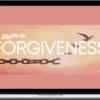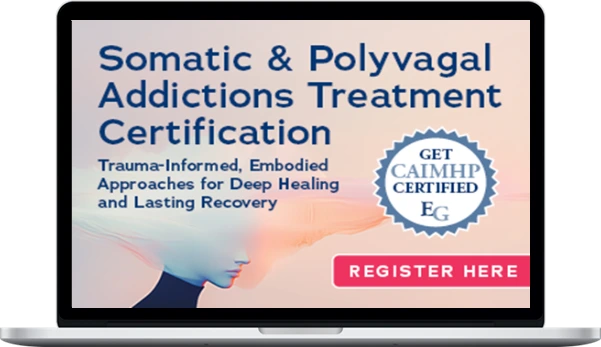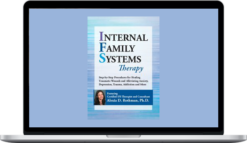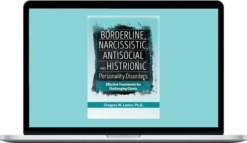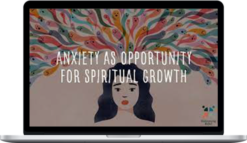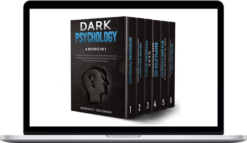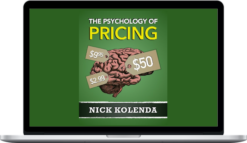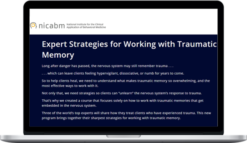Rafael Cortina & Jan Winhall – Somatic & Polyvagal Addictions Treatment: Trauma-Informed, Embodied Approaches for Deep Healing and Lasting Recovery
$149.99 $67.00
Total Sold: 1
»Instant Delivery
Description
Rafael Cortina & Jan Winhall – Somatic & Polyvagal Addictions Treatment: Trauma-Informed, Embodied Approaches for Deep Healing and Lasting Recovery
You’re not just treating addiction — You’re rewiring safety and connection.
Addiction isn’t about poor choices or faulty thinking.
It’s about a nervous system trapped in survival mode.
Until you know how to help your clients on that level, progress stays out of reach.
You need tools to create safety, connection, and regulation.
That’s exactly what the Somatic & Polyvagal Addictions Treatment Certification delivers.
Join renowned somatic traumatologists — Jan Winhall, Polyvagal Theory expert, and Rafael Cortina, Master Addictions Counselor and embodied recovery expert — you’ll learn the keys to healing addiction and deeply rooted trauma with non-pathologizing, harm reduction skills like co-regulation, attunement, resourcing, and much more.
Get the practical tools the medical model never taught you:
- Help clients shift from aroused to regulated nervous system states to say “no” to cravings
- Bring hidden trauma triggers and drivers of addiction to awareness
- Use “body cards” with clients to help pinpoint trapped emotions and target the root of addiction
- Explore attachment and trauma history with the Embodied Assessment & Treatment Tool™
And much more! PLUS, get a bonus training from Dr. Gabor Maté, the world leader in addiction and trauma treatment, that’s $129.99 value FREE!
AND, earn your Certified Addictions-Informed Mental Health Professional, completely free!
…because the most powerful tool in recovery isn’t a new model, it’s you — trained to guide clients to safety, connection, and freedom.
What You’ll Learn In Somatic & Polyvagal Addictions Treatment
In Module 1 you’ll learn about the “functional” model of addiction informed by the latest neuroscience and trauma-informed care. Module 2, teaches you how to do assessment and treatment planning through the lens of somatic and polyvagal strategies. You’ll then step into learning the keys to trauma-informed addiction treatment with somatic, gestalt, and other body-based approaches. In the final module, you’ll be introduced to the Felt-Sense Polyvagal Model (FSPM) for harm reduction treatment.
Module 1: An Embodied Approach to Trauma-Informed Addictions Recovery
A Compassionate & Relational Approach to Addiction
- How Gabor Maté’s work informs our practice
- A relational understanding of human needs
- The role of the therapist to…
- Create a ‘safe enough’ space
- Value vulnerability
- Create Meaningful Contact
- Addiction beyond substances
A “Functional” Understanding of Addiction
- The medical model falls short & limitations of DSM-V-TR™
- Gabor Maté’s definition applied
- Hope as “embodied knowledge”
- Shifting focus from behavior to emotional needs
The Role of Treating Trauma in Addiction Treatment
- Trauma as an emotional and somatic imprint
- Adaptation and survival through disconnect
- Neuroscience of trauma, impact on the brain
- Polyvagal theory: Understanding the nervous system in trauma
- Trauma in adult experience
- Trauma, addiction, and other co-occurring disorders
Essentials of Addiction Treatment
- Neurobiology of addiction
- Biopsychosocial aspects of substance use disorders: Nature vs Nurture
- Substances & classifications
- Behavioral/process addictions
- Levels of treatment/inpatient/out/intensive
- Behavioral Treatment
- Medication Assisted Treatment
- Incorporating the Harm Reduction Model
Module 2: A Relational Approach to Assessment & Treatment Planning
Embodied Assessment: Somatic Awareness, Regulation & Stabilization Techniques
- Mindfully assessing addiction history, screening tools, and intake questions
- Making a diagnosis based on levels of use, biological and physiologic markers
- Establishing a relational approach in the early stages of therapy
- Sensitively exploring the story and trauma markers
- The importance of safety and support in early recovery
Module 3: Integrative Techniques from Somatic, Parts Work, & Gestalt
Somatic Therapy Interventions
- Somatic tracking and body awareness techniques
- Movement and breathwork interventions
- Body-based mindfulness and grounding exercises
- Yoga and movement therapy for addiction recovery
- Resourcing the body for emotional resilience
- Polyvagal strategies for nervous system regulation and stabilization
Parts Works Interventions
- Experiential skill-building
- Body contact and awareness exercises
- Making space experiment
- Developing self-functions for resilience
- Trauma work: Undoing, redoing, and mourning
- Reprocessing and recontextualization of trauma
- Transforming and transcending trauma narratives
Compassionate/Relational Gestalt Interventions
- Tri-phasic model of trauma treatment
- Trauma work vs. Trauma processing
- Exploring how trauma shapes relational fields
- The role of compassion in holding trauma
- The relational Gestalt framework for trauma recovery
- Witnessing and validating
- Supporting Ambivalence
- The art of working with what is in front of you
- Therapist’s self-awareness and maintaining attunement
- Addressing the client’s fears of facing trauma and letting go of addictive behaviors
Special Issues in Embodied Addiction Treatment
- Ethical and legal considerations
- The role of group therapy, support groups, and 12-step groups
- Substance use among children and adolescents, prevention and treatment
- Special Populations include LGBTQ clients and those in the Criminal Justice System
Module 4: Polyvagal Strategies for Trauma-Informed Addiction Recovery
The Shift from Addiction Pathology to Strengths-Based Healing
- Pros and cons of DSM-TR-V™
- Limitations of the Brain Disease Model
- Addiction as ‘adaptive coping’ Inspiration from the early days of feminist therapy
- Connecting the interpersonal with neurobiology
The “Plastic Paradox” of Addiction
- Neuroplasticity and the changing brain
- Brain regions relevant to addiction treatment
- The “plastic paradox” of addiction
- A new lens: addiction as a neurophysiological survival state
Getting Started with Polyvagal Therapy
- 5 lessons of Polyvagal Theory
- Porges’ Polyvagal Model and updates to the traditional ANS model
- Honoring the mind-body connection through interoception
- Neuroception and the 7 F’s Graphic Model
- Simple language to use with clients
- Co-regulation is the “cure”
- Teaching interoception
- Skill building: Using body cards with “Blended States”
Polyvagal-Informed Six Steps of Focusing
- What is a Felt Sense? Integrating thoughts, feelings, memories, and physical sensations
- Using The Experiencing Scale
- Guide to the structure of focusing dynamics in session
- Tuning into the Felt Shift: the motor of change
- Experiential practice with six steps of Focusing
The Intersection of Polyvagal, Trauma & Addiction
- “I’m a trauma therapist, I don’t work with addiction”
- The intimate connection between trauma and addiction
- Clients living in dorsal and sympathetic states
- “Triggers are our friends”
- The role of attachment styles in addiction history
- Experiential Exercise in Early Attachment Styles
- Dan Siegel’s interpersonal neurobiology & the 9 domains of integration
Treating Addiction with the Felt-Sense Polyvagal Model (FSPM)
- 5 foundational theories supporting the Felt-Sense Polyvagal Model
- 4 core FSPM concepts
- Skill Building:
- Neuroception: Teach clients to recognize and rewire nervous system states with 7 F’s
- Interoception: Create emotional regulation with the 6 Steps of Focusing
- Practice makes presence: The Felt Sense Ground Practice
- FSPM Harm Reduction Practice: 4 Circles Method
- Demonstration: FULL demonstration of the 4 Circle Harm Reduction Method
Meet Your Experts
About Rafael Cortina
Rafael Cortina, LMFT, is a Master Addiction Counselor, Certified Clinical Trauma Professional Level II, and Certified Gestalt Therapist with specialized expertise in addiction treatment, EMDR, Dreamwork, and trauma processing for dual-diagnosis clients. He brings over 24 years of clinical experience across Mexico and the United States, working with individuals, couples, families, and groups. Rafael has extensive experience treating mood and anxiety disorders (with an emphasis on depression and bipolar), grief, and loss and has been a dedicated advocate for LGBTQ+ clients and those living with HIV/AIDS. Rafael is a sought-after speaker and presenter, leading international workshops, trainings, and lectures.
About Jan Winhall
Jan Winhall, MSW, FOT, is an author, teacher, and seasoned trauma and addiction psychotherapist. She is an Educational Partner and Course Developer with the Polyvagal Institute where she teaches a certification course based on her book Treating Trauma and Addiction with the Felt Sense Polyvagal Model, Routledge 2021. She is an adjunct lecturer at the University of Toronto and a Certifying Co-Ordinator with the International Focusing Institute. Jan is co-director of the Borden Street Clinic where she supervises graduate students. She enjoys teaching all over the world.
More courses from the same author: Rafael Cortina & Jan Winhall
Delivery Policy
When will I receive my course?
You will receive a link to download your course immediately or within 1 to 21 days. It depends on the product you buy, so please read the short description of the product carefully before making a purchase.
How is my course delivered?
We share courses through Google Drive, so once your order is complete, you'll receive an invitation to view the course in your email.
To avoid any delay in delivery, please provide a Google mail and enter your email address correctly in the Checkout Page.
In case you submit a wrong email address, please contact us to resend the course to the correct email.
How do I check status of my order?
Please log in to HealthcareCourse account then go to Order Page. You will find all your orders includes number, date, status and total price.
If the status is Processing: Your course is being uploaded. Please be patient and wait for us to complete your order. If your order has multiple courses and one of them has not been updated with the download link, the status of the order is also Processing.
If the status is Completed: Your course is ready for immediate download. Click "VIEW" to view details and download the course.
Where can I find my course?
Once your order is complete, a link to download the course will automatically be sent to your email.
You can also get the download link by logging into your HealthcareCourse account then going to Downloads Page.
Related products
Total sold: 1
Total sold: 3
